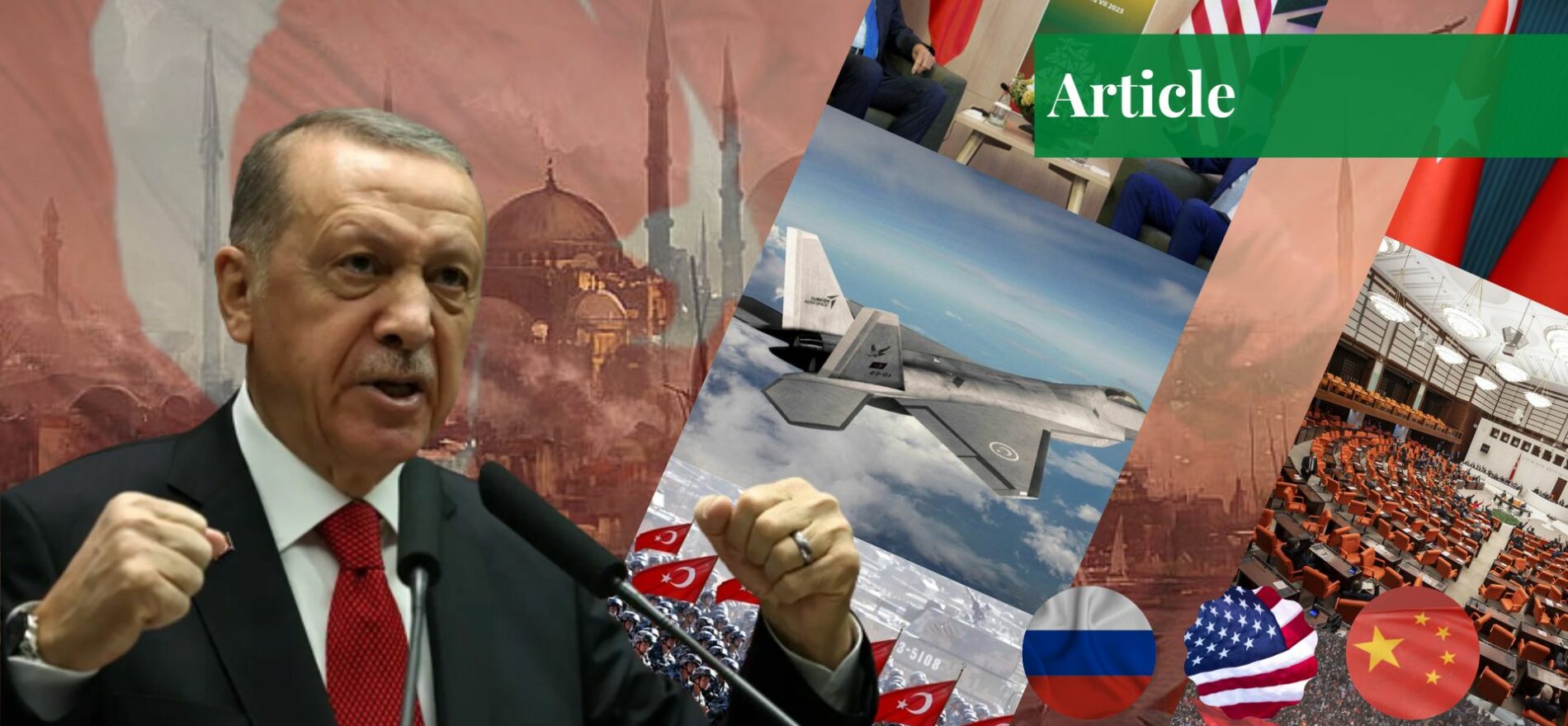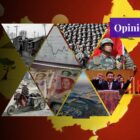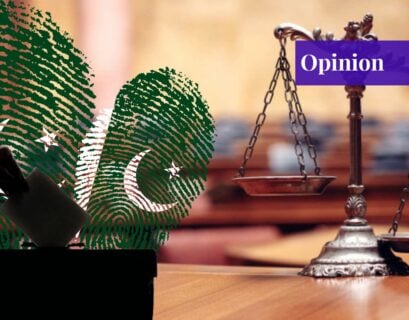Sibra Waseem is a student at National Defense University, Islamabad. She is currently pursuing a bachelor's degree in strategic studies.
Who is Recep Tayyip Erdogan?
Recep Tayyip Erdogan has served Türkiye both as prime minister and president. He has been in Turkish politics for two decades. His supporters view him as a strong man who has overseen significant economic growth and expanded Türkiye’s influence on the global stage. Whereas his critics regard his policies as increasing authoritarian tendencies and human rights record.
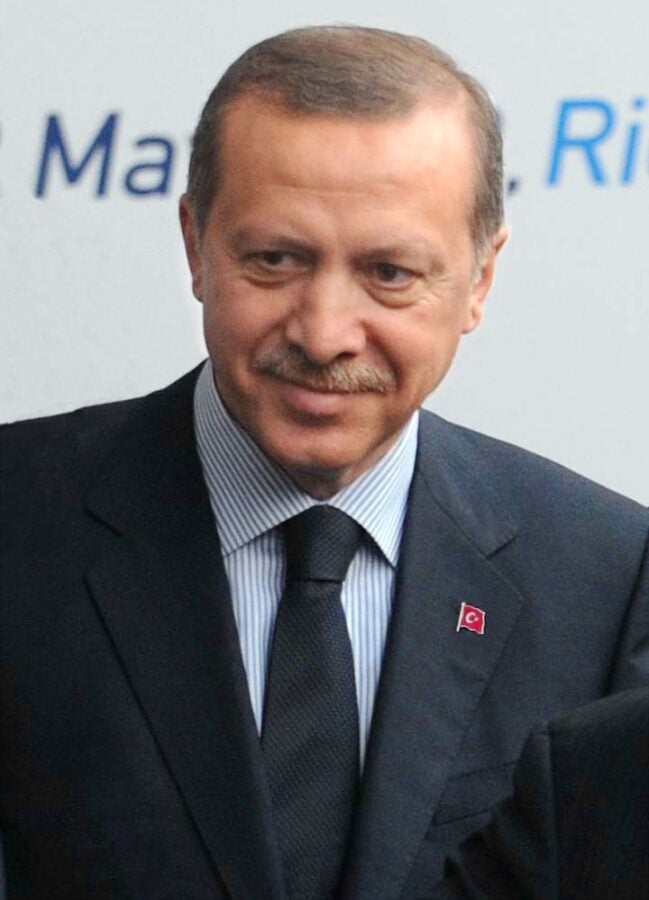
Scholars opine that, like many leaders of the Middle Eastern region, he is an autocrat, a dictator, and has a poor human rights record, but it is his assertive foreign policy and his reluctance to act as a puppet or bend to Western demands that have made him the subject of debate. At the same time, Türkiye’s rapidly rising influence is anchored in Erdogan’s ability to leverage Islamic soft power through Muslim discourse, allowing him to progress quickly across multiple domains.
The April 2017 referendum that considerably firmed the grip of Erdogan in world politics and bestowed him sweeping powers has been a matter of debate to date. Accordingly, the referendum allows the president to appoint ministers, control the budget, appoint judges, announce a state of emergency, dissolve parliament, and extend the term limit until 2029. Similarly, the 2023 general elections serve as a cautionary tale, with Erdogan ramping up his anti-West rhetoric. In the election campaign, he repeatedly hurled accusations of cooperation between the opposition and terrorist organizations and/or the West.
Rise in Anti-West Sentiments
While most anti-Americanism stems from concerns about Turkish sovereignty and the idea that the US is untrustworthy and imperialist, a more extreme strand—emphasizing that the Western superpower is essentially evil—has certainly been reinforced during Erdogan’s tenure. During the campaign, Erdogan’s interior minister, Süleyman Soylu, declared that anyone who expressed pro-Western sentiments was a traitor. He has often blamed Washington for meddling in Ankara’s domestic affairs.
Western nations are frequently charged with purposefully undermining Türkiye’s international standing. The Turkish government also believes that the West is actively equipping its neighboring adversaries, including Cyprus, Greece, and the Syrian Kurds, while ignoring its security concerns. The notion that has recently resonated most strongly with the Turkish public is that the West both supports and tolerates terrorist organizations such as the Kurdish circles linked to the terrorist Kurdistan Workers’ Party (PYD/YPG), as well as the Gülen movement—considered a terrorist organization in Türkiye.
Further, the strong stance of Recep Tayyip Erdogan on Islamophobia is one of the primary reasons that invites hate towards him. He has vehemently represented the oppressed Muslims of Palestine, Myanmar, Kashmir, and Xinjiang on multiple forums, such as the 2020 UNGA, and has not been afraid to call out major world powers for their atrocities. He has repeatedly condemned Israel, termed its policies “racist,” and denounced it as a terror state.
Apart from political reasons, it was his religious zeal that made him adamant about blocking the Swedish membership to NATO over the burning of the Holy Quran. The White House has made no secret of its impatience to try to persuade Mr. Erdogan to approve NATO membership for Finland too. To sum up, Türkiye’s role as a NATO member cannot be negated since it hosts a major air base used by the alliance’s forces, is home to fifty American nuclear warheads, and also bolsters NATO’s second-largest military after the US. As part of a 2016 agreement with the EU that managed to curb the flow of migrants to Europe, the nation now accommodates about 3.7 million Syrians.
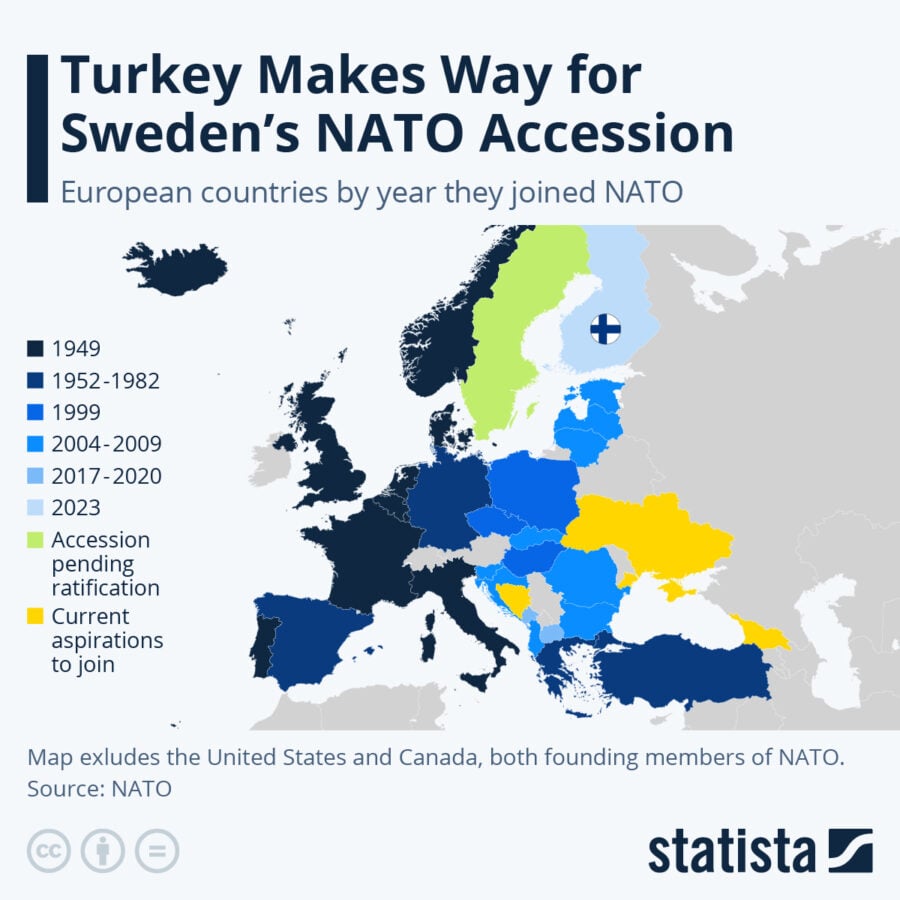
The president has expressed his desire to “make Türkiye great again“. This signifies the overarching strategic aim to restore Türkiye’s glory as a civilizational and important political force on a global scale dating to the pre-Kemalist era. This also points to the end of the Treaty of Lausanne by marking its 100th anniversary in 2023. However, this is another heated debate in international affairs. This hostility is founded on the strong emotions and beliefs that have defined the political landscape since the fall of the Ottoman Empire and the establishment of Türkiye.
Western-style modernization is closely linked to Turkish nationalism, according to the Kemalist tradition, yet it is accompanied by a strong distrust of the West. For decades, public opinion polls have reflected this. Numbers from the German Marshall Fund survey, Transatlantic Trends 2022, suggest that 67% of Turkish citizens believe the US has a negative role in international affairs, while only 23% believe it plays a positive role. Certainly, Erdogan’s aggression has grown into a real antipathy towards powerful states that were once used to Türkiye’s historical status as a supporting actor.
Russia-Turkey Relations
The Russo-Turkic relationship is viewed as suspicious by the West since both enjoy cordial relations. It is pertinent to note that no friendship deal or strategic agreement exists between the two states, yet they come to support one another in the face of Western opposition. Erdogan hails a special equation with the Russian premier and is often compared to Putin when it comes to authoritarian and expansionist policies.
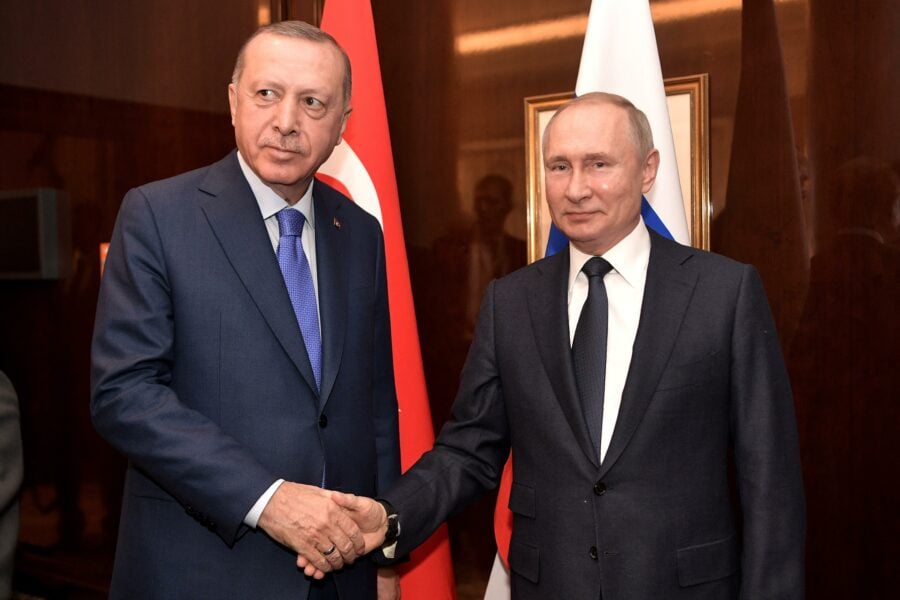
On the one hand, Putin has explicitly stated that he intends to restore the Old Russian Empire, while on the other hand, Erdogan’s desire to restore the Ottoman Empire is evident. Erdogan’s neo-Ottoman policy is manifested in the Turkish expansion of Cyprus. Moreover, the recent Black Sea grain deal diplomacy to avert a food crisis between the two leaders demonstrates the warming of relations. As per a senior Turkish official, the discussions of Putin’s visit to Ankara in late August are also ongoing.
The 2020 US sanctions on Türkiye in which it blocked major arms sales to Türkiye (F-35 joint strike fighter program) for the purchase of Russian S-400 technology, a deal reportedly worth $2.5 billion, have led to the hailing of the ties between Ankara and Moscow. Its two-way commerce with Russia exceeds $60 billion, more than double that with the US, and comprises 40-50 percent of gas imports—Türkiye’s primary energy source. Putin has spoken more implausibly of Türkiye being a European center for Russian gas. To add to Western dismay, the brewing of trilateral ties between Russia-Iran-Türkiye has added to Western frustration. The triad equilibrium forges economic and security partnerships, with a gas pipeline being the epitome of these relations.
Power Projection
The Chinese entry into the Middle East consequently led the Arab states, particularly Türkiye, Iran, and Saudi Arabia, which have tussled for power, to mend relations and focus on the economy. Türkiye has been an ally of China for many years, joining its infrastructure-funding Belt and Road Initiative in 2015. Similarly, Ankara’s power projection can be manifested by the fact that defense spending, as reported by the Daily Sabah, is expected to rise dramatically between 2023 and 2025, accounting for around 2% of GDP. Further, its military spending has arm-rocketed in recent years and Türkiye is now the fifteenth largest military spender in the world.
Baykar, a Turkish defense firm, has gained international prominence in recent years as a result of its light drone TB-2, which has been used in Ukraine, Azerbaijan, and North Africa and has been a huge export success, catapulting the firm to become one of the largest Turkish defense exporters. These lethal drones and multibillion-dollar transactions have undoubtedly contributed to Türkiye’s growing worldwide clout. Türkiye racked up a record $4.4 billion in arms exports in 2022, a number higher than any European country’s yearly defense expenditures.
Erdogan has clearly expressed the desire to make his state a nuclear weapon state and called out the United States for its hypocrisy in forbidding him to do so. He has also criticized Washington for aiding its immediate neighbor, Israel, to go nuclear. Erdogan inaugurated the first Turkish nuclear power plant built with Russian financial and technological assistance in April.
Erdogan’s Foreign Policy
Erdogan is committed to a more independent and assertive foreign policy. This was evident in his discreet carpe diem doctrine in the Mediterranean Sea which had a three-pronged objective (double-dealing, diplomatic skills, and ambiguity). The “2019 Blue Homeland” (Mavi Vatan in Turkish) policy, a maritime strategy aimed at asserting its rights and interests in the Eastern Mediterranean and the Aegean Sea, has caused considerable regional concern.
The strategy emphasizes the expansion of Türkiye’s naval presence in the region and the state’s maritime boundaries and exclusive economic zones (EEZ) in the Eastern Mediterranean. It asserts resource exploration and exploitation rights in waters claimed by other nations, particularly Greece and Cyprus. This has resulted in territorial conflicts and increased tensions between Türkiye and its neighbors. Many interpret the program as a reaction to the discovery of natural gas reserves in the Eastern Mediterranean. Adding on, the Turkish government also believes that the West is actively equipping Türkiye’s adversaries, including Greece, Cyprus, and the Kurds.
Conclusion
To summarize, the two-decade term of Recep Tayyip Erdogan in Turkish politics has been marked by an energetic leadership and a goal to restore Türkiye’s worldwide glory. Türkiye’s direction continues to be a source of great discussion and criticism as it navigates its way under him. Erdogan’s relentless dedication to supporting disadvantaged Muslim communities and fighting Islamophobia has earned him both respect and anger from millions of people throughout the world.
Without a doubt, Türkiye has strengthened its military capabilities and emerged as a major participant in the weapons industry, adding to its expanding worldwide power. The strategic partnerships forged with nations like Russia and China have allowed Türkiye to navigate international challenges and diversify its alliances. How Türkiye balances power, ambition, and controversy will determine its role in international affairs and its ability to shape regional dynamics.
If you want to submit your articles, research papers, and book reviews, please check the Submissions page.
The views and opinions expressed in this article/paper are the author’s own and do not necessarily reflect the editorial position of Paradigm Shift.
